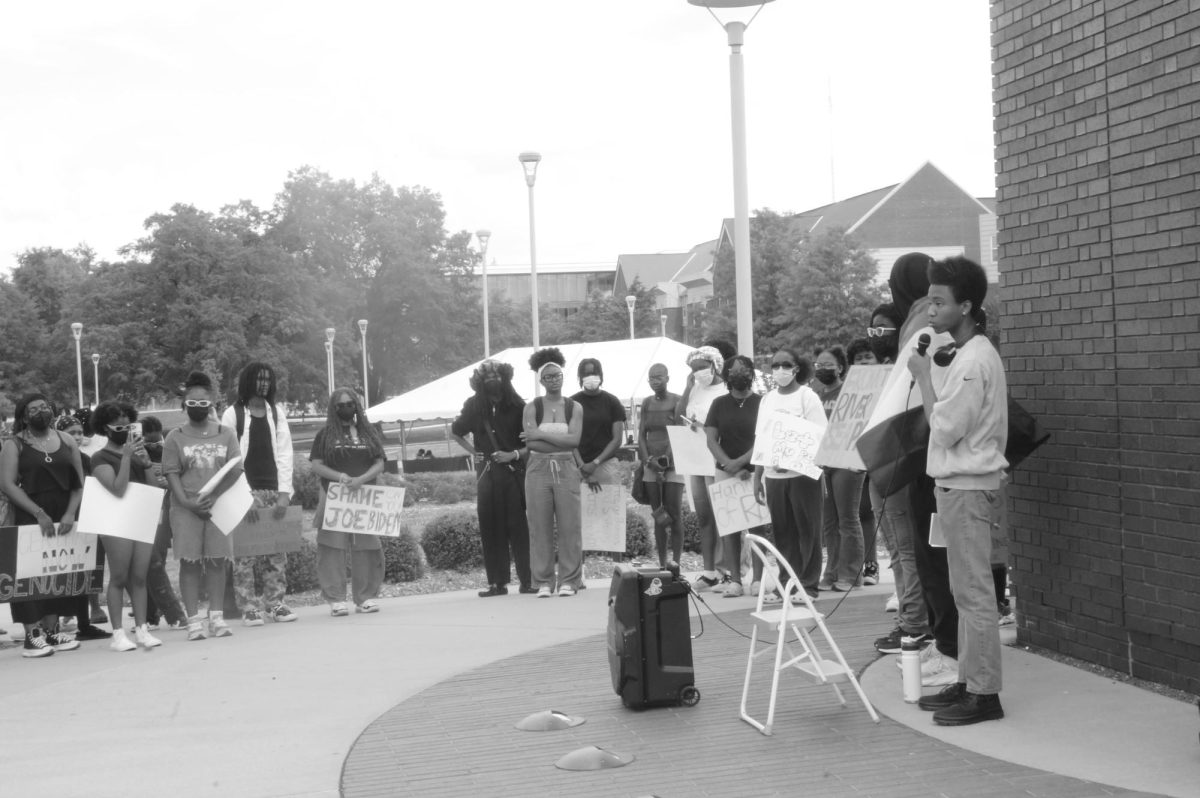A police force protects. The Crown Victoria sedans, sirens and uniforms are meant to symbolize safety and order.
Unfortunately, long-standing racial tension surrounding the Greensboro Police Department has pushed a group of citizens to create their own police review board.
This is happening at the same time as the police department seeks to revitalize its own system.
Trust in those who protect is essential for a content populace, but not everyone in Greensboro feels they can trust the police force.
“I don’t trust them at all,” said Early College junior Yasmine Byungura. “I think they are really biased, and there are certain things I do not feel they take seriously enough.”
This lack of trust has been an ongoing problem.
“(You’ll) be driving along and see a cop car stopped, and it turns into a kind of joke that (either) a woman or a black man (will) be inside,” said Jerry Phifer, longtime Greensboro resident.
Feelings like this have only been amplified by the retirement of former Police Chief Ken Miller, whose departure after four years of service led many to believe something had gone awry behind the scenes of the police force.
A history of racial profiling and a suspicious retirement did nothing to bolster trust in the Greensboro Police Department, but many residents are not aware of the extreme cases of police brutality.
According to beforeitsnews.com, Greensboro resident Tawana Sampson was brought in for a hit-and-run and then brutally beaten in a police department elevator in March 2012.
Later released, Sampson suffered a severe brain injury as a result of the attack and was forced to seek medical attention.
The police were unable to link her to the crime.
In response to the lack of trust and the presence of violence, an interim civilian police review committee has emerged in an attempt to bolster confidence in the police force.
Barbara Lawrence, associate professor of justice and policy studies, chairs the committee.
“I have big hopes that the leadership of Greensboro will continue to try to be progressive,” said Lawrence in an interview with The News & Record.
City leadership has not acted kindly toward the new board. Instead, they have staunchly defended the city-run alternative, the Complaint Review Committee.
The CRC, according to the city’s website, steps in only after the Professional Standards Division of the Police Department investigates a complaint and reaches a verdict on its own.
Once the board takes on a case, a majority vote must be reached in order to reconsider a verdict before they can begin talking to the Chief of Police. From there, an agreement must be reached between the Chief of Police and the board.
If an agreement cannot be reached, the city manager is brought in to make a final decision.
Though many citizens may feel more comfortable with a civilian-run board, the police department and the city stand by the CRC.
“The Greensboro Police Department believes the city currently has sufficient and effective systems of police oversight,” said Greensboro Police Department Public Information Officer Susan Danielsen in a text message response to a phone query. “It remains our position that any finding rendered by an organization that does not have access to facts is flawed and, therefore, meritless.”
Mayor Nancy Vaughan elaborated on the sentiment in a phone interview with The Guilfordian.
“I don’t think such a board is possible quite frankly,” said Vaughan. “There are certain things the city can do with personnel records, (but) we can’t give them to an independent group.”
Only time will tell if either one of these systems, the civilian review board or a refined CRC, will help rebuild trust in the Greensboro Police Department.






